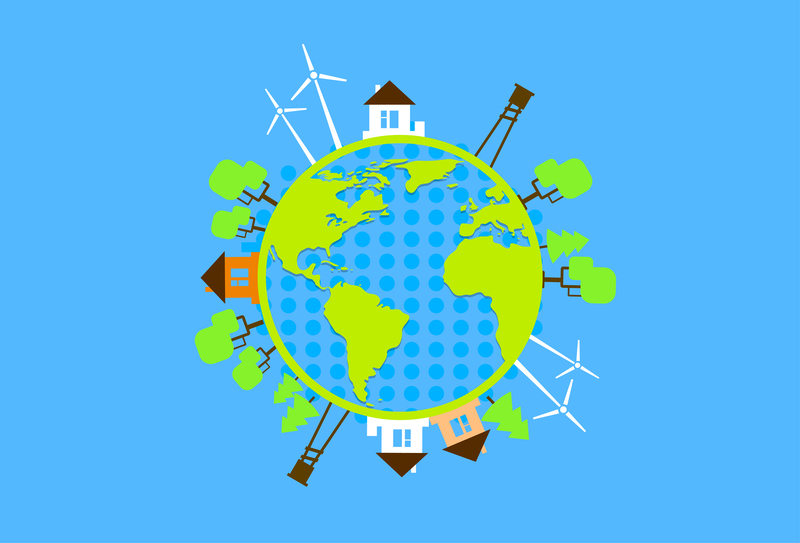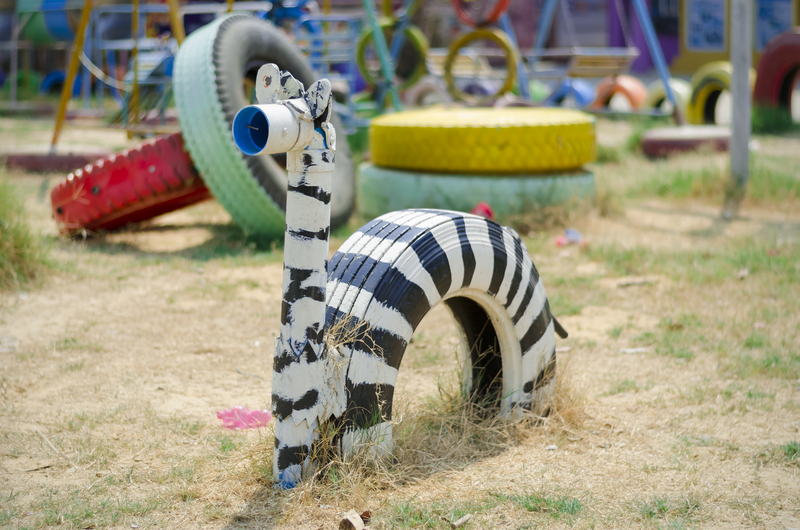The Art of De-Cluttering for Stress Relief: Find Calm in an Organized Space
Do you ever feel overwhelmed by the mess around you? Clutter is more than just an eyesore--it can affect your mental well-being, productivity, and even your physical health. The art of de-cluttering for stress relief is a powerful skill anyone can develop. Imagine coming home after a long day to a serene, organized space. The feeling is liberating--and you deserve it.

Why Clutter Causes Stress
Modern life bombards us with stuff: papers, purchases, digital distractions. All these contribute to daily stress, often more than we realize. Research shows that excessive clutter can:
- Increase cortisol (the stress hormone) levels
- Make focusing and relaxing difficult
- Trigger feelings of guilt and anxiety
- Interfere with healthy sleep patterns
Clutter creates visual and mental distractions--it reminds us of tasks left undone. When our homes are crowded, our minds become crowded too. Clearing clutter is essential for stress management, allowing us to focus, think clearly, and unwind.
Benefits of De-Cluttering for Your Mental Health
Organizing your space isn't just about appearance. The psychological benefits are profound. Let's explore why:
- Enhanced Mood: A tidy space can instantly boost your spirits.
- Reduced Anxiety: Less mess, less worry.
- Better Concentration: Organization leads to clearer thinking.
- Improved Sleep: A clutter-free bedroom contributes to restful nights.
- Sense of Accomplishment: Completing de-cluttering projects delivers a satisfying sense of achievement.
By embracing the art of de-cluttering for stress relief, you give yourself permission to prioritize mental wellness and tranquility.
The Psychology Behind Clutter and Stress
Why does a messy environment impact us so much? Our brains process visual information constantly. When there's excess clutter, our senses overload from all the competing stimuli. This creates tension and drains energy.
Psychologists note that clutter represents unfinished business. Each pile or stack is a visual reminder of decisions we have failed to make--which fuels stress and procrastination. Clutter triggers the belief that we are losing control, further impacting our sense of peace.
Emotional Clutter
Not all clutter is physical. Emotional clutter--old letters, keepsakes, or anything with unresolved feelings--can weigh just as heavily. Letting go of these items is as important as clearing tangible junk. The art of de-cluttering for emotional stress relief is a journey of both the hands and the heart.
Getting Started: The Fundamentals of De-Cluttering for Stress Relief
Ready to reclaim your sanctuary? Here's where to begin:
- Set Clear Goals: Decide what you want to achieve--less chaos, more calm, or just a neater home.
- Start Small: Choose a zone (like your desk or bedside table). Tackling one area prevents overwhelm.
- Schedule Time: Block off 15-30 minutes daily for organizing. Small efforts add up quickly.
- Enlist Support: Invite family or friends for motivation and accountability.
Essential Principles of Decluttering
- Everything Has a Home: Assign a place for every item to avoid future messes.
- One In, One Out: For each new item you bring home, remove another.
- Let Go of Guilt: Don't keep things out of obligation--donate, sell, or recycle items guilt-free.
- Focus on Functionality: Retain what serves a real purpose.
Remember: The goal is progress, not perfection.
Room-by-Room Guide to De-Cluttering for Stress Relief
The Entryway
- Clear the surfaces: Remove unnecessary shoes, keys, or mail.
- Set up storage: Add hooks, baskets, or a small tray for essentials.
- Simplify decor: Keep this space open and inviting.
Living Room
- Streamline surfaces: Limit books, magazines, and decorations on tables.
- Invest in hidden storage: Use ottomans, baskets, or cabinets.
- Donate or store unused items: Remove anything you don't use weekly.
Kitchen
- Edit down utensils and gadgets: Keep only what you use regularly.
- Discard expired food: Clean out your pantry and fridge often.
- Organize by zones: Group items by activity (coffee, baking, food prep).
Bedroom
- Clear nightstands: Keep the essentials like a lamp, clock, and book.
- Rotate clothes: Store off-season garments elsewhere.
- Reconsider sentimental items: Display only what brings you joy.
Bathroom
- Throw out expired products: Lotions, medicines, and makeup expire--dispose regularly.
- Use containers: Separate daily essentials from seldom-used items.
- Install shelves or hooks: Maximize vertical space for storage.
Home Office
- Go paperless: Digitize documents where possible.
- Sort mail immediately: Recycle or file right away.
- Keep a clear desk: Only essentials belong here--remove extra supplies and distractions.
Clever Decluttering Methods and Techniques
The Sorting System
Try the Four-Box Technique:
- Keep
- Donate/Sell
- Trash
- Relocate
As you work through each area, place items into the right box. Don't overthink--follow your instincts for less stress!
The 12-12-12 Challenge
Find 12 items to throw away, 12 to donate, and 12 to return to their proper place. This quick, focused challenge is perfect for busy schedules and brings instant results.
The KonMari Method
Popularized by Marie Kondo, this method encourages you to hold each item and ask, "Does this spark joy?" If not, thank it for its service and let it go. This mindful approach adds gratitude to your organizing process.
One-A-Day Rule
Remove one unnecessary thing from your life every day. Over a year, that's 365 fewer items creating chaos!
De-Cluttering for Stress Relief: Digital Spaces Matter Too
Physical clutter isn't the only source of stress. Digital clutter--old emails, unused apps, endless notifications--can consume attention and mental bandwidth. To declutter your digital life for inner peace, try these steps:
- Organize your inbox: Unsubscribe from lists you don't read.
- Delete old files: Clear out downloads and desktop clutter.
- Streamline your apps: Remove those you no longer use.
- Limit notifications: Turn off unnecessary alerts for a quieter mind.
Clearing out digital clutter helps reduce overwhelm, boost focus, and create a more harmonious environment--virtually and physically.
How to Maintain a Clutter-Free Lifestyle for Long-Term Stress Relief
The real challenge is consistency. Here's how to keep the calm flowing:
- Practice mindful purchasing: Buy only what you truly need and love.
- Adopt routines: A 10-minute nightly tidy can prevent build-up.
- Embrace minimalism: Prioritize experiences over things to avoid future clutter.
- Reflect regularly: Periodically reassess your belongings and clear out what no longer serves you.
- Celebrate progress: No step is too small--each action brings you closer to peace of mind.
Troubleshooting: Overcoming Common De-Cluttering Challenges
Feeling Overwhelmed?
Break tasks down even further. Choose a drawer instead of a whole room. Reward small victories.
Struggling with Sentimental Items?
It's okay to keep what genuinely matters, but set boundaries. Consider taking photos of mementos to retain the memory while letting go of the object.
Family Resistance?
Encourage open communication. Explain the benefits, involve everyone in decisions, and lead by example with your own things.
Fear of Needing Something Later?
Set up a "maybe" box. If you don't retrieve items within 3-6 months, you probably won't miss them.
The Art of De-Cluttering for Stress Relief: The Takeaway
Clutter doesn't have to control your life or your mood. By mastering the art of de-cluttering for stress relief, you build a foundation for greater mental clarity, emotional stability, and daily joy. An organized home is a gift--to yourself and all who share your space.
- Start small and be consistent
- Focus on progress over perfection
- Celebrate every step toward serenity
If you're ready to reclaim your space and your peace, don't wait--start today. The calm you create outside is the calm you invite within.

Frequently Asked Questions on the Art of De-Cluttering for Stress Relief
How does de-cluttering improve mental health?
De-cluttering can reduce stress and anxiety by creating a calm environment, decreasing distractions, and allowing you to focus more easily on what matters most.
How often should I de-clutter for best results?
It varies! Some people benefit from monthly sessions, while others prefer a little each day. The key is consistency--develop a rhythm that works for you.
What if my family doesn't support de-cluttering?
Start with your personal items. Often, your positive results inspire others to join in. Communicate openly and involve them in decisions.
Can de-cluttering help with depression or anxiety?
While not a sole treatment, organizing your space can offer therapeutic benefits and provide a sense of control and accomplishment. If you're struggling, combine de-cluttering with other supportive practices and reach out for professional help as needed.
How do I avoid future clutter?
Adopt new habits, such as mindful purchasing, regular maintenance routines, and asking yourself whether items support your well-being.
Conclusion: Your Journey to Stress-Free Living Starts Here
The art of de-cluttering for stress relief is transformative. It's the practice of letting go--of excess, of guilt, and of the past. With patience and persistence, you can turn chaos into calm and invite more peace into every day. Take the first step and experience the joy of a clutter-free, stress-free life--because you deserve it!